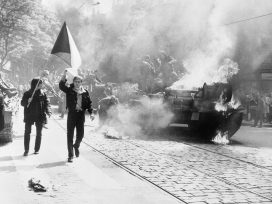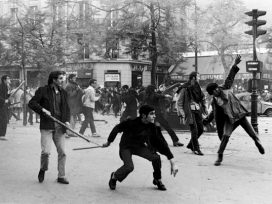
Mykola Riabchuk recalls how the politics of the Prague Spring filtered through to the Ukraine until the crackdown on ‘Ukrainian bourgeois nationalism’ in 1972-73; and how, during perestroika, the roles were reversed and he was able to bring banned literature to friends in Czechoslovakia.



